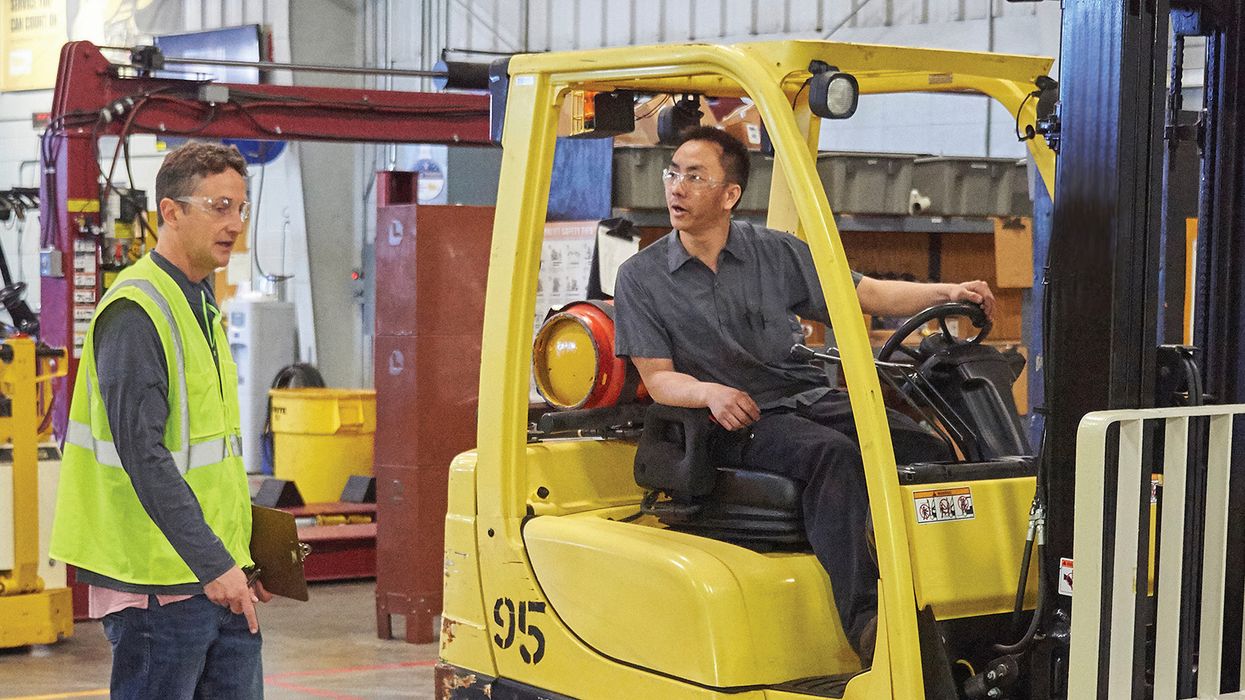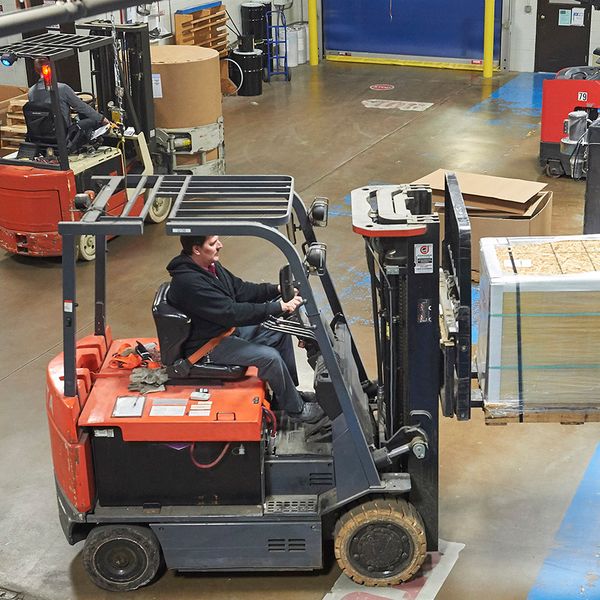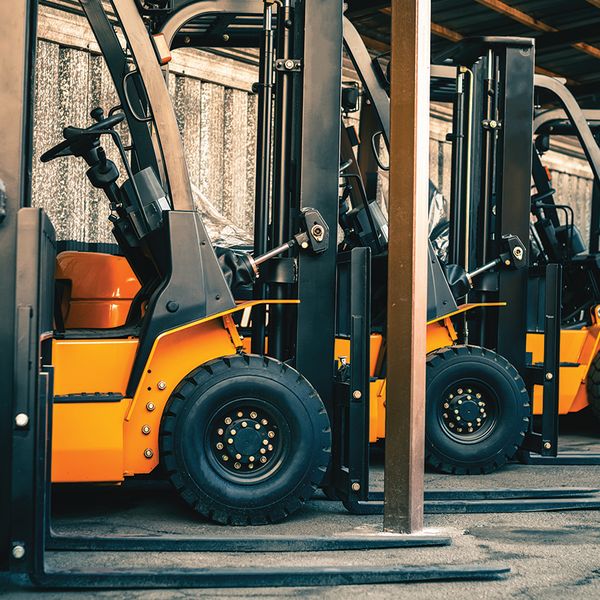Training tips for encouraging forklift operators to report minor defects
Employers must train forklift operators to inspect the truck for defects before use. If the lights and horn work, no fluids are leaking, and everything else looks good, does that mean the forklift is safe to use?
Most of us drive personal vehicles but we don’t inspect our cars before hitting the road. If a dash light goes on or the car starts making strange noises, we know something is wrong. Without those warnings, we assume that everything is working.
Along the same lines, a forklift operator is not a mechanic and mostly looks for obvious problems during the pre-use inspection. Most of the time, everything checks out, but minor issues that get overlooked could become safety hazards during operation.
Overlooked defects
Performing the same inspection every day can cause complacency, and an operator in a rush might overlook a minor defect. On the other hand, conducting daily inspections every should give operators a feel for what looks “normal” and help them notice if something changed since the last inspection.
For example, even a small amount of hydraulic fluid leaking isn’t normal. If no previous inspections identified the leak, the operator should report it and remove the truck from service. In reality, if the shift is about to start, there’s no backup forklift, and the operator is worried about delaying work, will they report an apparently minor leak?
Training tip: When training on forklift inspections, emphasize the importance of reporting anything that doesn’t look right. Even a seemingly minor issue could worsen during the shift. Operators must be confident that they won’t get reprimanded for reporting minor issues, even if it causes work delays.
When an operator does report a problem, thank the person, even if the issue doesn’t require removing the truck from service. Never tell the operator that reporting was a waste of time. That could discourage future reporting, and the next safety issue could be serious.
Operators should not hesitate to report even minor issues and should never ignore a safety concern.
Damage during operation
Forklift operators must complete an inspection before the shift, but what if something goes wrong or breaks during the shift? Damage or failures probably don’t occur while the truck is sitting idle over the weekend, but rather happen while the truck is in use. If a pre-shift inspection identifies a problem, that issue might have occurred during the previous shift.
Although OSHA doesn’t require mid-shift inspections, situations may occur that justify a check for damage. Just like driving a personal vehicle, if the operator notices that something seems wrong (vibration, odd noises, or other evidence of concern) the operator should evaluate the truck and determine if it needs repair. Similarly, if an item falls from a load into the mast, the operator might need to verify that no hoses or other parts sustained damage.
Training tip: During training, emphasize that if operators notice a problem mid-shift or believe the truck sustained damage, they should immediately report the concern and remove the truck from service for evaluation or repair.
If operators report damage to the forklift, thank them for their honesty and commitment to safety. Reporting damage that delays work (especially damage caused by operator error) is preferable to using an unsafe forklift that may cause injury or property damage.
Key to remember: To ensure forklifts remain in safe working condition, operators must be confident that they won’t get reprimanded for reporting even minor issues, whether pre-shift or during the shift.























































